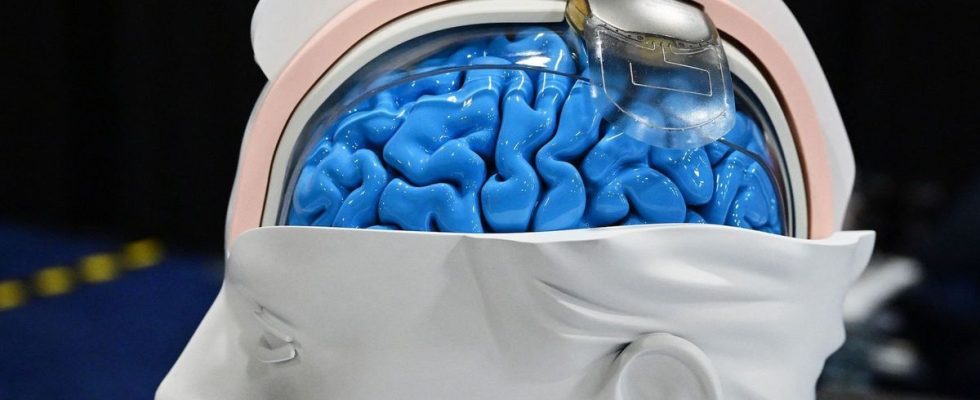Published on
Updated
Reading 2 min.
Start-ups from around the world looking for markets for their prototypes and innovations powered by artificial intelligence (AI), from mirrors connected to electric strollers, have been at CES, the annual technology show in Las Vegas since Sunday.
Mirror, my beautiful mirror… tell me who is the healthiest?
Called “MagicMirror”, NuraLogix’s connected mirror scans Lindsay Brennan’s face and determines, in a matter of seconds, her body mass index, her blood pressure and even her “mental stress index”, calculated from heart rate .
“You can see mine is a little high, I’m almost in the yellow” notes this marketing manager of the Canadian company, pointing to the indicator displayed on the mirror. “It’s because of CES“, she jokes.
NuraLogix claims that thanks to its optical technology and artificial intelligence programs, its mirror can assess risks of diseases such as type 2 diabetes.
“It all started with researchers at the University of Toronto, who were working on lie detection in children“, says Lindsay Brennan.
“They realized that when we are excited or tense, blood flow changes in the face, and we can capture these changes with cameras“.
The mirror is expected to cost just under $70,000, and Nuralogix also plans to sell the software separately.
“We want to sell it to establishments, to hospitals for their waiting rooms, pharmacies or community centers, any place that would have an interest in offering this type of health check.“, specifies the manager.
Implant to walk again
The brain implant designed by the biomedical research center of the Atomic Energy Commission (CEA), based in Grenoble, should allow paralyzed people to walk again.
Equipped with electrodes, this “brain-machine interface” is installed in direct contact with the motor cortex of a paraplegic or quadriplegic patient.
In the first case, the data collected by the implant is transferred wirelessly to a connector attached to the spinal cord, below the paralyzing lesion. The patient then just has to think about walking for the information to pass to the connector then to the legs.
“It’s a digital bridge“, explains Guillaume Charvet, head of the research program at the CEA, to AFP.
In the second case, the implant communicates with an exoskeleton which carries out the gestures commanded by the patient.
With a connector placed on a forearm, it can, for example, allow you to grasp an object with your hand.
“A clinical trial will start soon”indicates Mr. Charvet, emphasizing that five to ten years of research are still necessary.
But patient volunteers have been participating in development for several years now.
“The goal is for it to be in the same price range as a pace-maker.“, he adds.
Automatic stroller
“It’s the first electric stroller with all the AI comfort and safety options“, assures Jeffrey To, engineer at Glüxkind.
The motorized and AI stroller is supposed to make the complicated life of parents easier, like a “co-pilot”, he explains.
The electric assistance allows you to climb the hill without sweating, and the brakes engage automatically if you let go of the stroller.
“It slows down and stops, so there is no risk of the stroller getting carried away and leaving on its own“, continues the engineer, with a demonstration to back it up.
“It recognizes humans, animals, scooters, bicycles, vehicles that might not stop and gives parents an extra warning. Sleep-deprived parents therefore have daily driving assistance“, underlines Kevin Huang, co-founder of the Canadian company.
When the parent activates the “Rock my baby” function, the stroller moves back and forth regularly, as if the adult were pushing it back and forth to help the child move. fall asleep.
“There are also built-in speakers that can play stories, music or white noise“, specifies Jeffrey To.
Glüxkind hopes to begin production in the spring of this year, and sell it for around $2,400.
